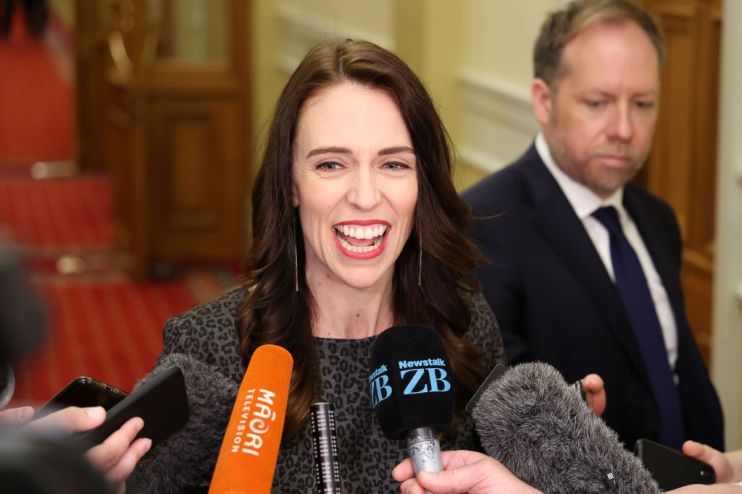CANZUK is a cause in need of a champion — enter Jacinda Ardern

This past weekend’s sweeping victory for New Zealand Prime Minister Jacinda Ardern brought her Labour Party its largest majority in five decades.
Unusually for New Zealand politics, this could mean that Ardern oversees a government without any coalition partners. Yet she appears keen to consider a coalition government nonetheless.
It is to that spirit of reaching across the aisle that Ardern should draw as she plots the future course of her political career which already transcends New Zealand.
In 2017, Ardern became the world’s youngest female head of state at just 37. Her victory then was part of a global wave that brought a number of young leaders to power, most notably French President Emmanuel Macron (age 39 when elected). A year later, she again made headlines around the globe when she became only the second elected leader in history to give birth while in office -— after Pakistan’s Benazir Bhutto. Last year, in the aftermath of a tragic terrorist attack in Christchurch, she attracted global attention once more for the leadership she showed in confronting right-wing extremism and Islamophobia.
The chorus of global accolades has grown this year with the country’s prompt response to coronavirus. New Zealand has come through the crisis better than most so far, and life there has mostly returned to normal, with large gatherings and the like proceeding as usual.
Over the past three years, Ardern has repeatedly won the respect of the global community. Now, the opportunities of the post-Brexit world offer the chance for her to take an even more prominent role on the global stage should she so choose.
How? By forging stronger ties between Canada, Australia, New Zealand, and the United Kingdom, an idea which has gained traction in recent years and is known by the acronym “CANZUK”.
CANZUK is a cause in need of a champion. And Ardern may be precisely the politician to bring it into reality — both because of who she is and because of who she is not.
For a start, Ardern cares deeply about her nation’s ties to the other Commonwealth countries. Last year, in an appearance on the BBC, she spoke of New Zealand’s “deep and long, not just economic” relationship with the United Kingdom — a relationship she made clear she is “ready and willing” to make much deeper. As a former policy advisor to Prime Minister Tony Blair when she briefly lived in London, she knows the UK well and has similar ties to the other CANZUK nations.
“Our countries share common commitments, whether in relation to democracy, human rights, a rules based order, trade or preservation of peace and security. We are a natural partner on the key issues of our time,” she wrote in an op-ed last year. The piece was about the relationship with the UK, but those lines which could just as easily frame the relationship between any of the CANZUK states.
CANZUK supporters are often pilloried as the sort who never take their sunglasses off because the sun never sets on the British Empire. Here, Ardern is essential because of who she is not.
Such anti-CANZUK smears would be impossible to pin on her. She is, after all, a figure of the socialist left who wore a formal Maori cloak when she met the Queen at a Commonwealth event in 2018. Her recent victory also saw the election of New Zealand’s first parliamentarian of African heritage, Ibrahim Omer, a former refugee from Eritrea.
In a world where left-right distinctions are perhaps less important, CANZUK marks a clear post-partisan enterprise. Were Ardern to advocate for CANZUK — which is so often viewed as a project for the right — she would likely ensure that labour and environmental standards are protected as part of any deal, as well as those of minority groups in all four countries.
As for the benefits of CANZUK, they speak for themselves: four countries with a combined $6.5 trillion in economic activity and $3.5 trillion worth in trade activity would make CANZUK the fourth largest economic entity in the world after China, the US, and the EU.
Visa-free travel and free movement arrangements make sense given the patchwork of agreements already link the four countries. The four states also make up four of the famed “five eyes” involved in global intelligence sharing (leaving out, of course, the US).
A CANZUK agreement doesn’t just make much practical sense, it is also popular, across the political spectrum and indeed the world. Ardern won 49 per cent of the vote this past weekend — the most since the country’s proportional representation system was introduced in 1996. If CANZUK had been on the ballot, it might well have proved even more popular.
According to a poll by CANZUK international, the concept has wide support across all four countries: 68 per cent of Britons, 76 per cent of Canadians, 73 per cent of Australians and a whopping 82 per cent of New Zealanders are in support of the proposal.
Ardern’s public support for such an effort would be historic, and help cement a global legacy.
Main image credit: Getty